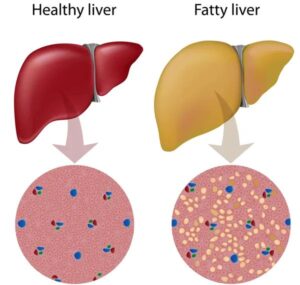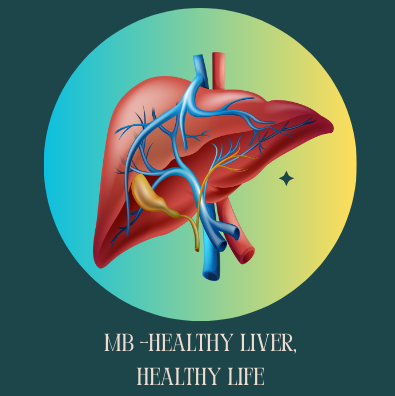How to Protect Yourself from Liver Disease
Summary:
Overview
The significance of liver health
Typical liver conditions
Recognizing the Function of the Liver in the Body
The liver’s functions
How it breaks down nutrients and poisons
Liver Disease Types
Liver Fatty Disease (NAFLD & AFLD)
A, B, and C hepatitis
Cirrhosis
Cancer of the Liver
Liver disease causes and risk factors
Overindulgence in alcohol
Obesity and poor nutrition
Infections with viruses
Genetic components
A Balanced Diet to Protect the Liver
Foods that are best for liver health
Foods to stay away from
Hydration and the Health of the Liver
Water’s function in detoxifying
The best drinks to assist the liver
Restricting the Use of Alcohol and Substances
Guidelines for safe drinking
The liver’s reaction to high alcohol consumption
Frequent Exercise and the Function of the Liver
How exercise lowers the risk of fatty liver disease
The best workouts for liver health
Steer Clear of Dangerous Drugs and Toxins
Drugs available over-the-counter that damage the liver
Environmental pollutants to stay away from
Keeping Your Weight in Check
Obesity and liver disease are related.
Techniques for controlling weight
Receiving a Hepatitis Vaccine
The significance of hepatitis vaccinations
Who ought to receive a vaccination?
Frequent screenings and examinations of the liver
The significance of early detection
Suggested medical examinations
Natural Liver Health Remedies
Supplements made of herbs that promote liver function
Possible dangers of unregulated supplements
Stress Management for a Healthy Liver
Stress’s effects on liver health
Techniques for relaxation
In conclusion
Summary of the main points
promotion of a liver-friendly way of living
Overview
One of our body’s most important organs, the liver, is in charge of digestion, metabolism, and detoxification. Hepatitis, cirrhosis, and fatty liver disease are among the ailments brought on by the increased strain that contemporary lifestyle choices are placing on the liver. Your general health depends on protecting your liver. We’ll go over practical strategies to protect your liver and avoid illness in this article.

Recognizing the Function of the Liver in the Body
The liver is essential for several body processes, including:
Toxin removal from the blood
Bile production for digesting
Keeping vital nutrients in storage
Controlling blood sugar levels
These processes can be interfered with by liver injury, which can result in serious health issues.
Liver Disease Types
Disease of the Fatty Liver
Obesity and poor diet are the main causes of non-alcoholic fatty liver disease (NAFLD).
Alcoholic Fatty Liver Disease (AFLD): A condition brought on by consuming too much alcohol.
Hepatitis
Viral infections that impair liver function include hepatitis A, B, and C.
Cirrhosis
hepatic scarring as a result of chronic injury.
Cancer of the Liver
may arise from liver disorders that are left untreated.

Liver disease causes and risk factors
Overindulgence in alcohol gradually destroys liver cells.
Fat builds up in the liver as a result of poor diet and obesity.
Hepatitis B and C are two examples of viral illnesses that can harm a person for a long time.
Susceptibility to liver disease is influenced by genetic factors.

A Balanced Diet to Protect the Liver
Top Foods for Healthy Liver Function
Leafy greens, such as kale and spinach
Antioxidant-rich fruits (apples, berries)
fatty fish, such as sardines and salmon
Seeds and nuts (flaxseeds, walnuts)
Foods Not to Eat
Foods that have been processed
Too much sugar
Processed and red meats
Foods that are fried and heavy in fat
Hydration and the Health of the Liver
Water consumption is crucial for eliminating pollutants. Lemon water and herbal teas can help support liver function.
Restricting the Use of Alcohol and Substances
Adhere to the moderate drinking guidelines, which call for one drink for women and two for men each day.
Steer clear of excessive medicine use and recreational drug use.

Frequent Exercise and the Function of the Liver
Exercise aids in lowering hepatic fat accumulation.
Every day, try to get in at least 30 minutes of exercise.
Steer Clear of Dangerous Drugs and Toxins
Acetaminophen and other painkillers can harm the liver if taken excessively.
Reduce your exposure to industrial chemicals and pesticides, among other environmental pollutants.
Keeping Your Weight in Check
Liver disease can be exacerbated by excess body fat.
Maintain a healthy weight by eating a balanced diet and leading an active lifestyle.
Receiving a Hepatitis Vaccine
Serious liver damage can result from hepatitis B and C.
One secure and efficient method of infection prevention is vaccination.
Frequent screenings and examinations of the liver
Liver disease can be identified early with routine blood tests and ultrasounds.
If you have abdominal pain, jaundice, or exhaustion, see a doctor.
Natural Liver Health Remedies
Turmeric and milk thistle are well-liked for liver detoxification.
A healthcare professional should be consulted prior to taking herbal supplements.
Stress Management for a Healthy Liver
Liver function may be impacted by ongoing stress.
Engage in mindfulness, deep breathing, and meditation.
In conclusion
Maintaining a long and healthy life depends on protecting your liver. You may maintain ideal liver health by eating a healthy diet, exercising frequently, drinking plenty of water, and abstaining from dangerous drugs. Vaccinations and routine medical examinations also improve protection against liver disease.
FAQs
1. What symptoms of liver disease appear first?
exhaustion, black urine, jaundice, and inexplicable weight loss.
2. Is it possible to reverse liver damage?
Dietary and lifestyle modifications can reverse fatty liver disease in its early stages.
3. How much alcohol is unhealthy for the liver?
While moderate alcohol consumption is healthy, excessive alcohol consumption can harm the liver.
4. Do liver detoxes work?
Detoxes don’t work, according to science; the best course of action is to maintain a balanced diet and lifestyle.
5. How frequently should my liver be examined?
It is advised to have liver function tests every year, particularly if you are at risk.
 https://analytics.google.com/analytics/web/#/analysis/p405220706
Skip to content
https://analytics.google.com/analytics/web/#/analysis/p405220706
Skip to content 
